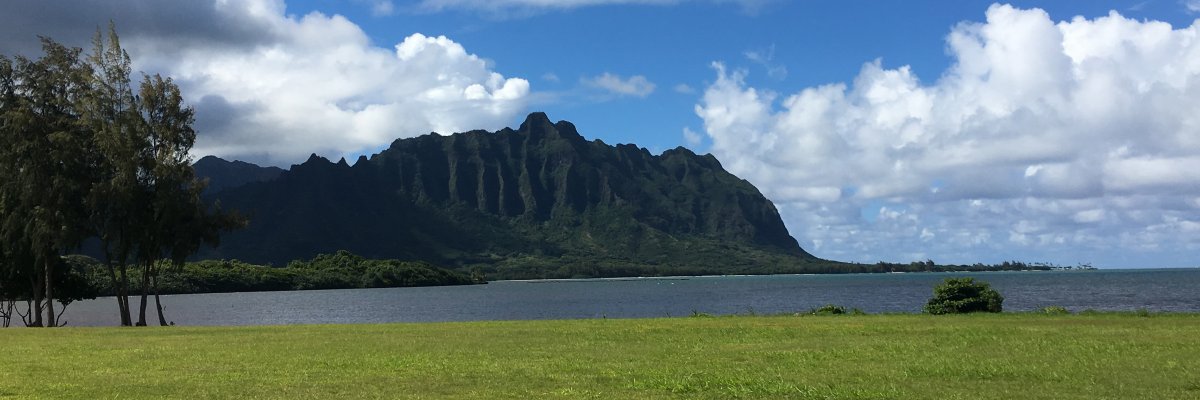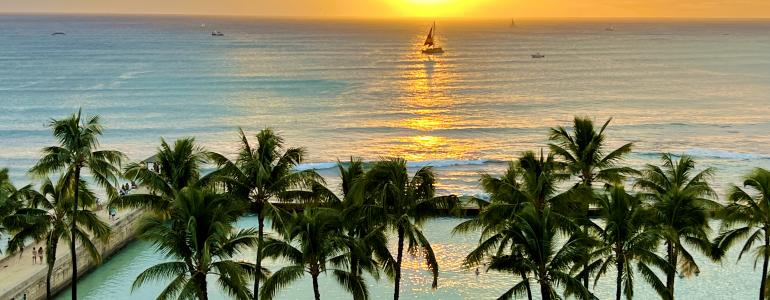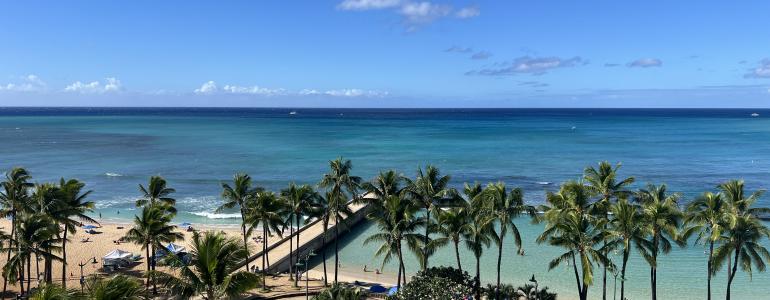The world loves the Hawaiian Islands. Their striking natural beauty and rich culture and history make them an unforgettable and popular world destination.
Highly trafficked destinations typically implement some sort of visitor fee(s) to help cover the costs of maintaining parks, beaches, and services, and Hawaii is no different.
Before you travel, it's helpful to know that Hawaii has a variety of visitor fees and taxes that help protect its fragile environment and support local communities. Being aware of these costs ahead of time will help you understand how your contributions help keep the Islands thriving.
Hawaii Lodging and Accommodation Taxes
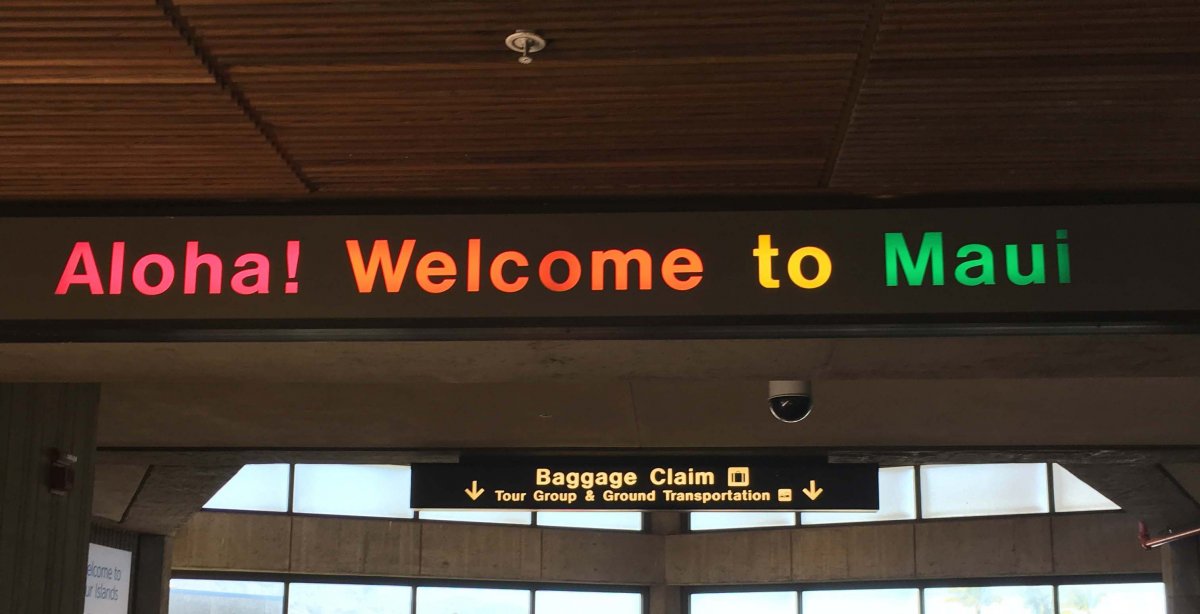
All vacation rentals, hotels, and resorts in Hawaiʻi must collect two main taxes on nightly rates:
-
Transient Accommodations Tax (TAT): This is the statewide lodging tax, currently 10.25%, with an increase to 11% taking effect in 2026.
-
County TAT Surcharge: Each island adds up to 3% on top of the state rate, meaning the combined TAT can reach 13% depending on location.
-
General Excise Tax (GET): A separate 4.166% to 4.712% tax applies to nearly all goods and services in Hawaiʻi, including hotel stays and vacation rentals.
Altogether, visitors can expect lodging taxes to total around 17–18% of their room rate, depending on the island. These fees can be attributed to the cost of maintaining paradise.
The Cost of Maintaining Paradise
Remember that most of the islands have very mountainous interiors that are often inaccessible and not suitable for housing. This means that on most islands, the habitable areas are located on or near the coasts, essentially reducing the size of the islands further and putting greater stress on infrastructure and natural habitats.
To get a better sense of the overall size of the most visited islands, check out the table below.
| Island | Area (sq. mi.) | Comparable Mainland Size | Visitors in 2024 |
| Big Island | 4,028 | Similar to Connecticut or about half of New Jersey | 1,729,027 |
| Maui | 727 | Dallas–Fort Worth metro area or slightly smaller than Rhode Island | 2,345,288 |
| Oʻahu | 597 | Greater Los Angeles (city limits) or slightly larger than Houston | 5,814,176 |
| Kauaʻi | 552 | Similar to Austin, Texas or slightly smaller than Chicago | 1,369,012 |
Visiting Popular Beaches, Sites & Monuments
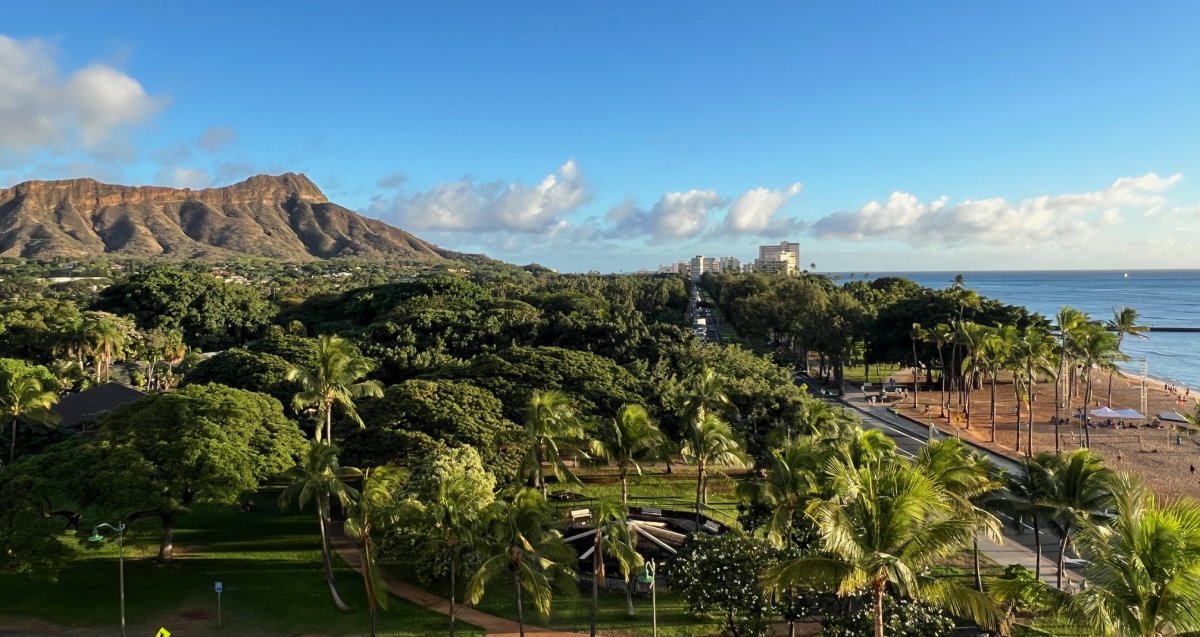
In addition to the standard accommodation taxes and fees that all visitors pay, there are also non-resident fees associated with popular beaches and sites across the islands. Below is a table outlining some of popular beaches and monuments you may want to visit during your stay along with the fees associated with them. Details are linked to the appropriate government website.
| Park / Beach | Island | Non-Resident Fee | Details & Source |
| Hāpuna Beach State Recreation Area | Big Island | $5 per person entry + $10 parking | Residents free with Hawaiʻi ID. [DLNR] |
|
Hāʻena State Park |
Kauaʻi | $5 per person entry + $10 per vehicle parking | Reservation required for non-residents. [DLNR] |
| Waimea Canyon State Park | Kauaʻi | $5 per person entry + $10 parking | Applies to both Waimea Canyon & Kōkeʻe same-day visits. [DNLR] |
| Kōkeʻe State Park | Kauaʻi | $5 per person entry + $10 parking | Shares permit/fee system with Waimea Canyon. [DNLR] |
| Waiʻānapanapa State Park | Maui | $5 per person entry + $10 vehicle parking (day-visit) | Also camping/cabin rates higher for non-residents. [DNLR] |
| ʻĪao Valley State Monument | Maui | $5 per person entry + $10 parking | Non-resident fee required; reservation suggested. [DNLR] |
| Mākena State Park (Big Beach/Little Beach) | Maui | $5 per person entry + $10 vehicle parking | Applies daily; residents free. [DLNR] |
|
Kamaʻole Beach Parks |
Maui | $10 per vehicle per day (parking only) | County-managed; beach access is free. Residents park free with Hawaiʻi ID. [Parks Maui] |
| Diamond Head State Monument | Oʻahu | $5 per person entry + $10 per vehicle parking | Residents free with Hawaiʻi ID. [DLNR] |
Visiting Haleakalā National Park on Maui
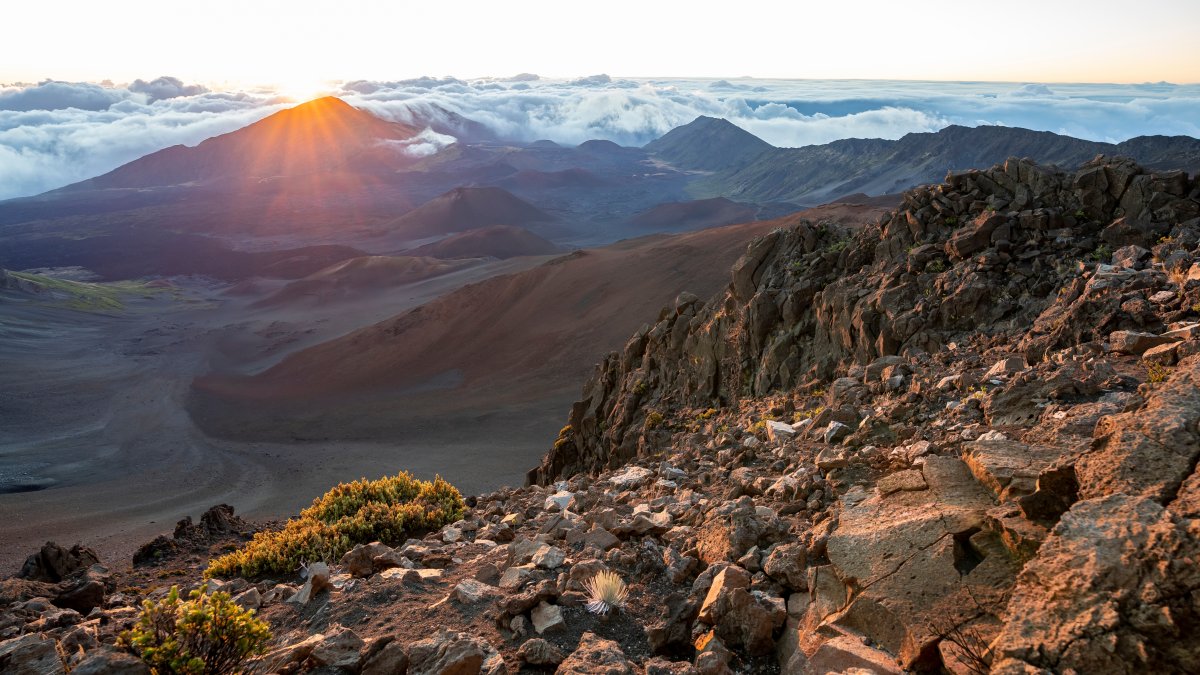
Here are the current rules for visiting Haleakalā National Park on Maui for a sunrise experience. Read our Maui Top 5 Activities.
Reservation & Access
-
A reservation is required for each vehicle entering the park’s Summit District between 3:00 a.m. and 7:00 a.m. (HST).
-
These reservations are made through the National Park Service / Recreation.gov. National Park Service
-
Reservations open up to 60 days in advance of your desired date.
-
A portion of slots will be released 48 hours (2 days) in advance.
-
The fee for the sunrise reservation is $1 per vehicle (non-refundable) and does not include the standard park entrance fee.
-
The reservation is per vehicle, not per person. The driver (reservation holder) must present the confirmation email and a photo ID matching the name on the reservation.
-
You may only have one sunrise reservation every three days per customer/account. National Park Service
Park Entrance & Other Details
-
In addition to the sunrise reservation (if arriving between 3:00–7:00 a.m.), you must pay the regular park entrance fee or present a valid pass.
-
If you drive into the park after 7:00 a.m., a sunrise reservation is not required.
-
Arriving before 3:00 a.m. may allow you to enter without that specific sunrise reservation (though it can be logistically challenging).
Practical Tips & Conditions
-
The summit is at 10,000 ft elevation: expect cold temperatures, wind, and quick weather changes. Bring layers, a jacket, hat, gloves, etc.
-
There are no food, gas or extensive services up at the summit; fuel up and pack snacks/water before departure.
-
Limited parking at the highest-elevation lots. The reservation guarantees access to enter during sunrise hours, but not necessarily a specific parking spot.
-
Even with the reservation system, the weather can impact views (clouds, fog), and reservations are not refundable/exchangeable due to weather.
-
If you can’t get a sunrise reservation, visiting the summit after 7:00 a.m. or at sunset remains a spectacular option (and doesn’t require the pre-reservation).
Hawaii is a welcoming, beautiful destination that has so much natural beauty to offer visitors. A little foreknowledge will help take the surprises out of your visit and ensure you get to see all the sites you want to experience. Mahalo and see you in Hawaii!
